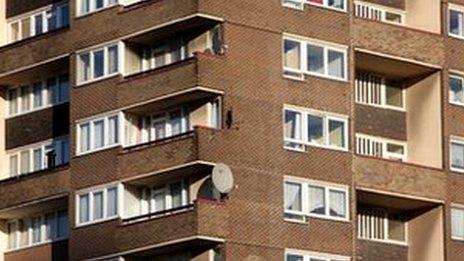Do the wives (or husbands) swing votes?
- Published

Few people would ever consider asking their other half to join them at a job interview - yet that's exactly what the leaders of the three major parties have encouraged their wives to do in the run up to the 7 May General Election.
Careers, children and normal lives have been put on hold to enable Samantha Cameron, Justine Miliband and Miriam Gonzalez Durantez to hit the campaign trail to help their men secure the keys to Number 10.
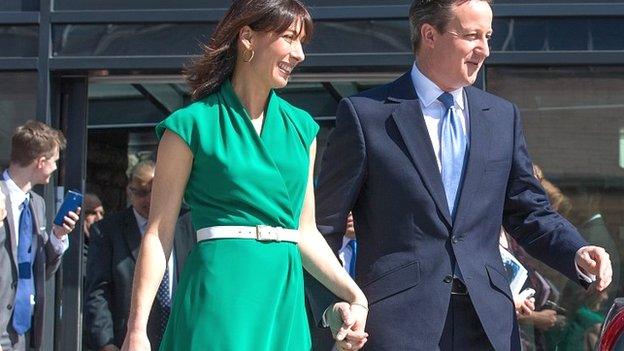
Commentators enjoy analysing Mrs Cameron's choice of clothes and the items in her home
But does their presence at key events - like the launch of a manifesto - or meeting candidates in marginal seats really work?
After all, why does it matter if the PM holds his wife's hand? Or that Ed and Justine have two kitchens? Or that Miriam decided refused to move into a grace and favour property?
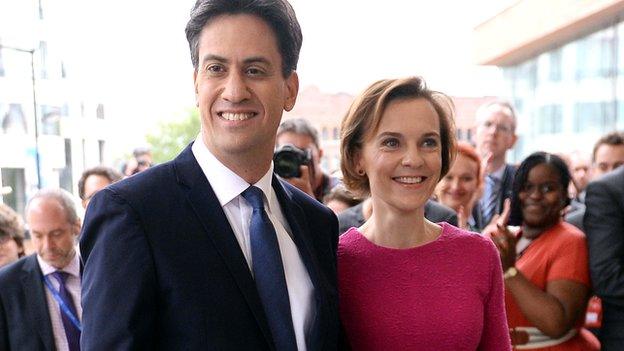
Mrs Miliband told one newspaper she fell in love with her husband while out canvassing
Why do we care?
According to Joe Twyman, Head of Political and Social Research at pollsters YouGov, the partners of our leading politicians are there to make their other halves "look normal" to us, the voters.
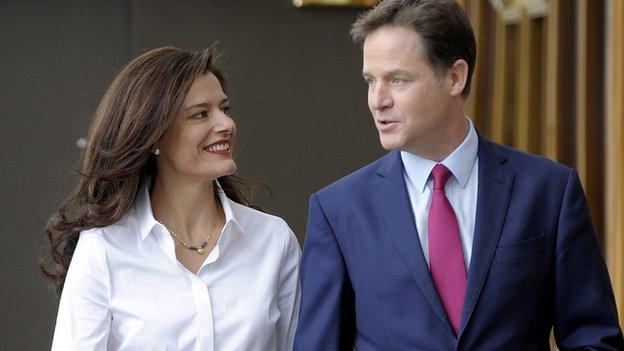
Ms Gonzalez Durantez didn't want to move house when her husband went into government
And carrying out media interviews with them in a place we can all relate to - like the kitchen - only re-emphasises those "normal" credentials.
"All leaders are seen - to a lesser or greater extent - as slightly abnormal," he said. "Wives help, in all cases, make their husbands seem more like us."
"So it's to do with 'I have a wife - you have a wife'. 'I have a kitchen with a wife - you have a kitchen with a wife'. 'This is the way this politician lives.'
"Yes, these are all contrived photo opportunities, but the kitchen is about families - they wouldn't want us to see them in their dining room or drawing room," he said. "Regardless of how big or small your house or mansion is, we can all relate to a time when the family met in the kitchen.
"Basically, it's a cost benefit analysis. Does the benefit of bringing out your wife outweigh the cost? These wives are very successful at what they do, so the parties consider them an asset. Secondly, the campaign is much closer than before and the results aren't certain, so they will want to get every possible advantage they can.
"The three men leaders are seen as professional politicians who are out of touch with society - they want to come across as normal and trustworthy. Bringing in the family, and seeing them with their wives, feeds into that."
And it would seem, for Samantha Cameron at least, her appearances and recent interviews - including how she believes, unsurprisingly, that her husband "is definitely for my mind the best man for the job" - have worked in her favour.
A poll conducted by YouGov suggests 71% believe Sam Cam is the best election asset for her party, compared with 19% for Mr Miliband's wife Justine and 10% for Miriam, Mr Clegg's wife. At 74%, Mrs Cameron is particularly popular among 25-39-year-olds, according to the survey, and men (74%) compared with women (68%).

The SNP, Greens and Plaid Cymru are coy about showing off the leaders' other halves
So why haven't we been introduced to the partners of the smaller party leaders?
Twyman believes it's because Natalie Bennett (Greens) and Leanne Wood (Plaid Cymru) are not well known. "They need to build up their profiles first," he said. "Nicola Sturgeon (SNP) is better known in Scotland, but she's not well known nationally. They don't want any stories talking about their husbands when the stories could be talking about them."
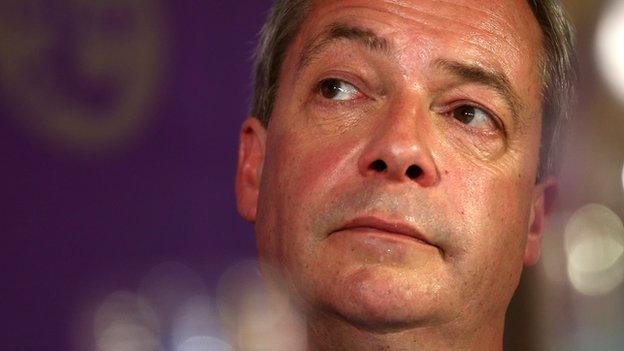
Farage: 'I want to be alone?'
And, according to Laurence Stellings, opinion pollster at Populus, the smaller parties still have a novelty value that is lacking in their bigger counterparts. "When you've been around five years, people think they've heard everything you've got to say, so putting the focus on your wife is a welcome distraction," he said. "If you're a small party, you have got something new and exciting to talk about. You don't need to talk about your partner - they can be your secret weapon later, once you're well known."
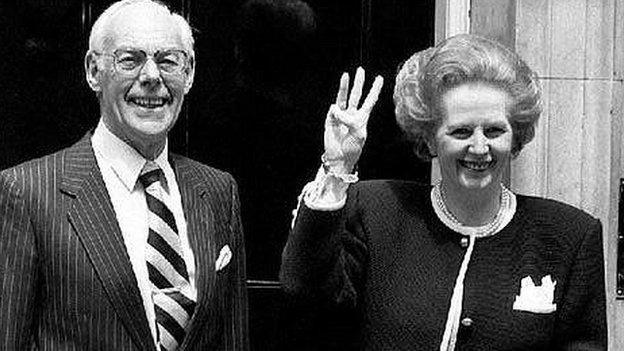
Denis Thatcher kept a low key presence when he was with his wife, the PM
But what about UKIP leader Nigel Farage. Do the same "rules" apply to him? Why is his wife kept behind the scenes? Twyman suggests that, if he was being cynical, it might be because she is German "which isn't exactly on message for UKIP". But he adds that might be doing Mr Farage a disservice "and he may be trying to protect his wife's privacy".
Philip Cowley, professor of parliamentary government at the University of Nottingham, co-author of The British General Election of 2010 and co-editor of Sex, Lies and the Ballot Box, external , says there has always been a tradition of leader's spouses accompanying them on big occasions.
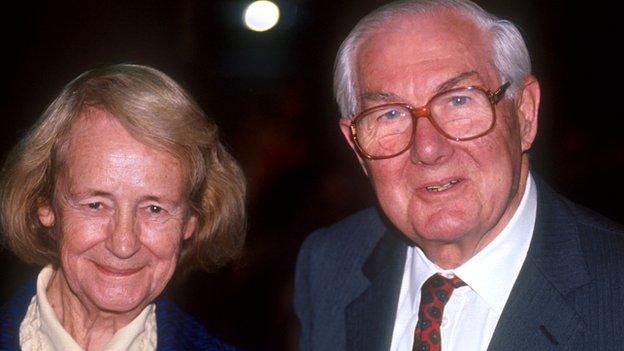
Audrey Callaghan often accompanied her husband, James
But he claims the growth in media outlets, particularly online, has fuelled demand for a more personal focus on leaders and their families.
"There was definitely less coverage of elections in the past," said Cowley. "The BBC would've done radio programmes and TV broadcasts on the election, but they wouldn't have had space for any left-field questions about politicians' wives, even though many of them were fairly well known at the time.
"For instance, (Labour PM 1945 to 1951) Clement Attlee's wife Violet used to drive him around during election campaigns," said Cowley. "They would stop on the roadside to have their sandwiches with their detective before going on to the next event.
"Harold Wilson (Labour PM 1964 to 1970 and 1974 to 1976) did some photo calls with his wife, Mary, even though she loathed politics - while Denis Healey's wife Edna and (Labour PM 1976-79) James Callaghan's wife Audrey were often present with them in the 70s. And of course Denis stuck with Margaret Thatcher, although he played a more low key role than the current leaders' partners.
"But the fact is we just don't know what effect partners/wives/husbands have."
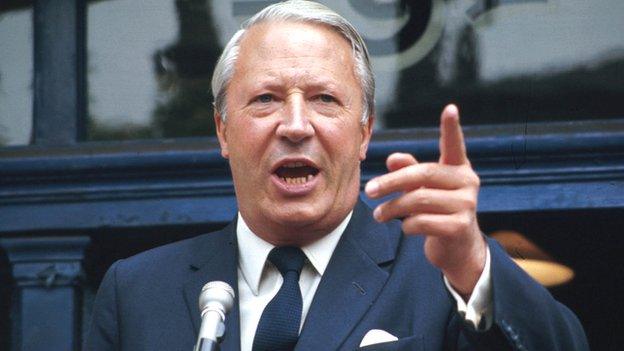
Former Conservative PM Edward Heath's lack of a partner caused people to speculate
The evidence suggests that being single is not a bar to being elected - Edward Heath was single and elected Conservative PM from 1970 to 1974.
Times have changed, and there have now been four decades without an unmarried person leading one of the two largest parties at Westminster. Indeed the party leaders spend considerable effort trying to give us the impression that they are everyday people who have families, kitchens and lives like ours.
Back to Mr Cowley: "The one thing I learnt when I was a schoolboy doing O-level film studies was that nothing in films happens by accident.
"It happens because the director has decided it's going to happen - in politics it's the same. If a leader's wife appears on stage - it's because someone has decided that would be a good move electorally. It doesn't mean the wife wants to do it, but that someone has decided it could make a difference."
- Published14 April 2015
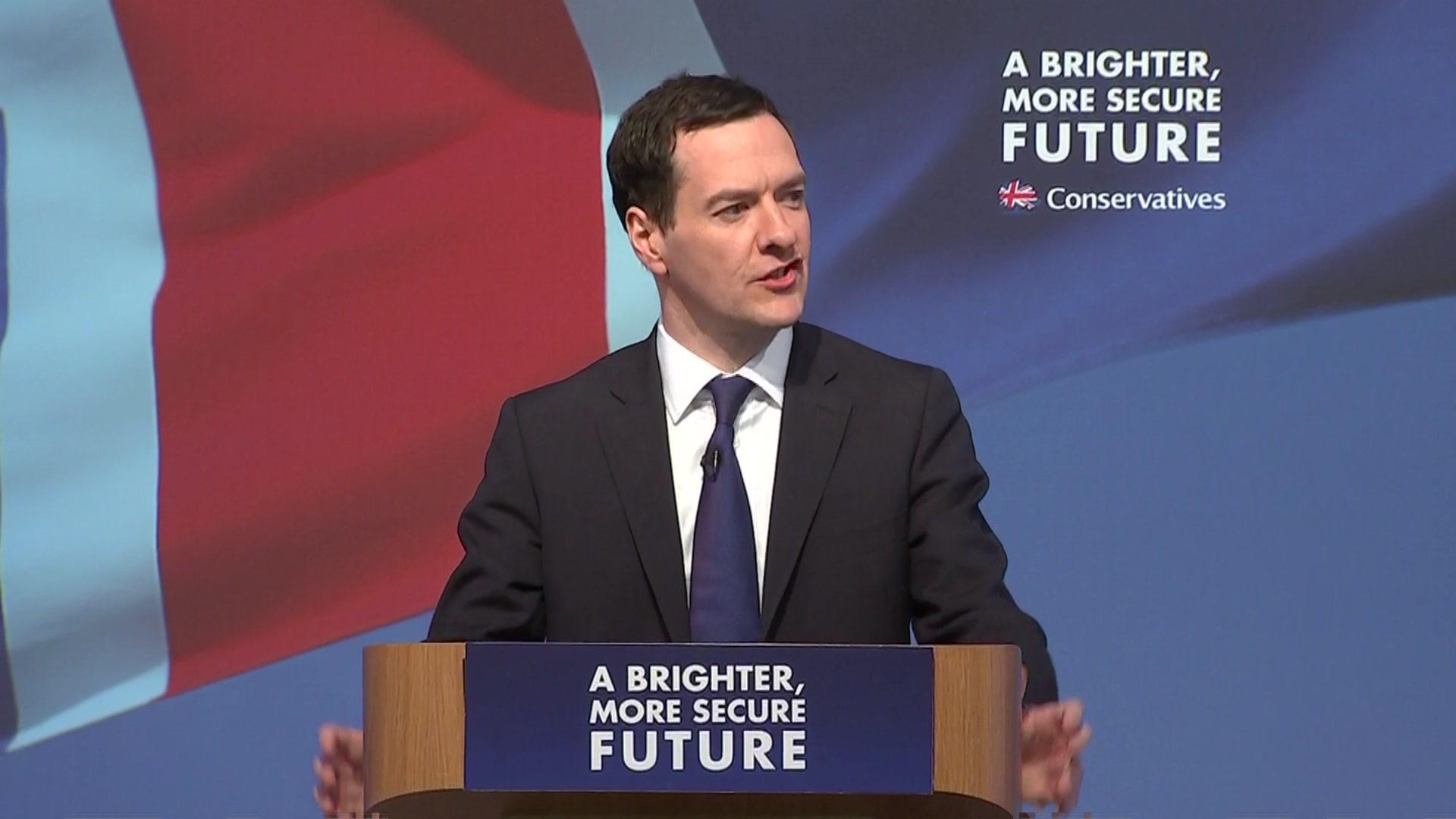
- Published12 April 2015
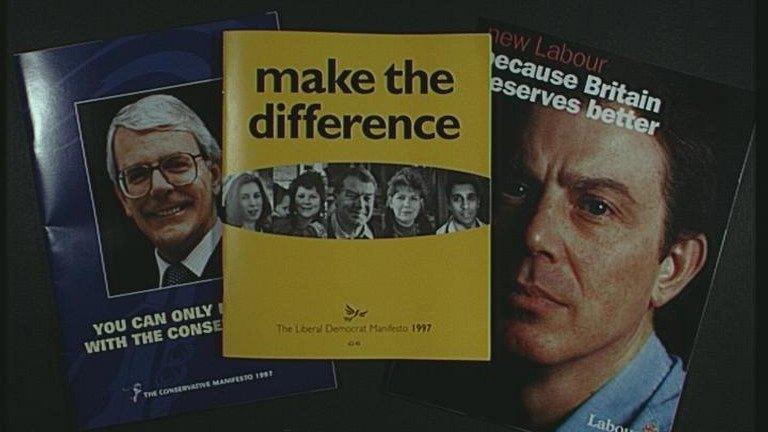
- Published13 April 2015
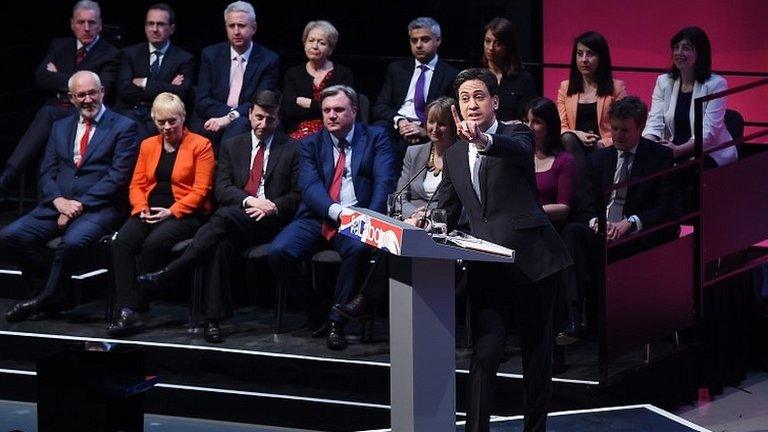
- Published13 April 2015
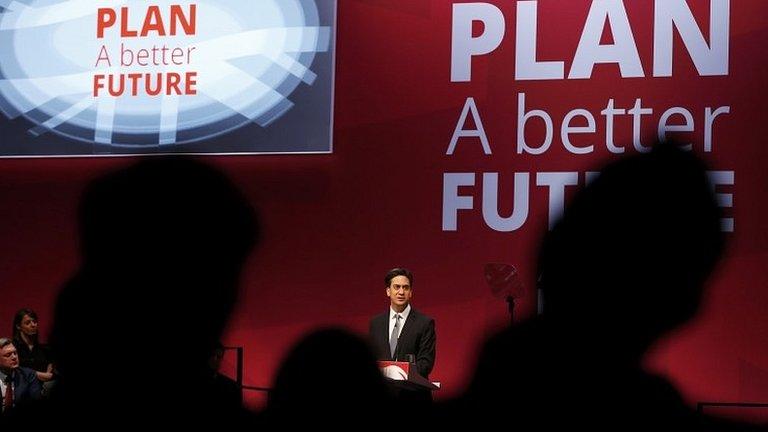
- Published3 July 2013
